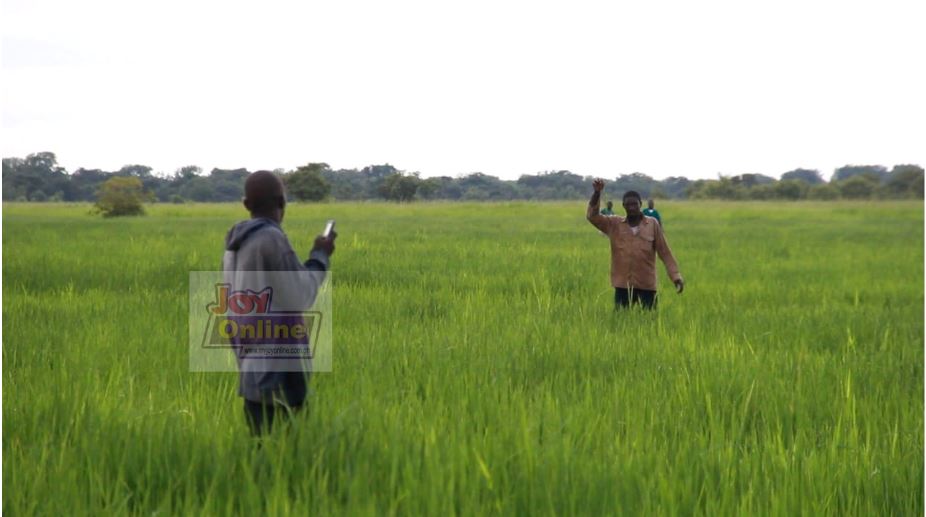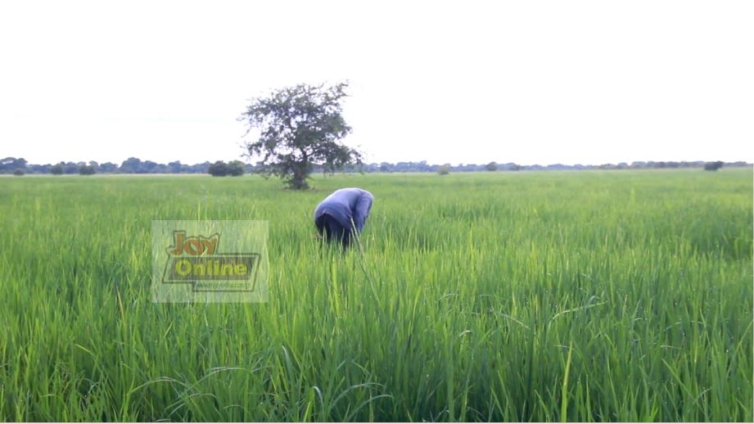
Audio By Carbonatix
Coordinator at SAFCE, Gabriel Manyangadze told the press at a virtual conference that they are calling upon all the funders to please stop funding Alliance for a Green Revolution in Africa (AGRA).
Mr. Manyangadze wants investors to focus their funds on systems that allow people to have dignity, where all creation has an equal chance to live, and where there are no poisons in our water, soil, or food.
Speakers emphasised how the Alliance for a Green Revolution in Africa (AGRA) has promoted a development paradigm that strengthens reliance on foreign inputs, such as pricey fertilizer, eroding the resilience of African food systems.
The Alliance for Food Sovereignty in Africa (AFSA), Africa's leading food producer networks demand a radical transition away from imported fossil-fuel-based fertilizers and chemicals and toward self-sufficient, ecological farming that revitalizes soil and protects ecosystems.
These demands come soon before AGRA's annual forum, which will be held in Kigali, Rwanda, from September 5th to 9th, on the theme "Bold Action for Resilient Food Systems." However, a united alliance comprising Africa's largest network of food producers and faith leaders has stated unequivocally that the 'bold action' they seek is for AGRA's funders to discontinue sponsoring an effort that has failed to enhance production, income, and food security.

AGRA's supporters include the Gates Foundation, the Rockefeller Foundation, USAID, the governments of the United Kingdom, Germany, among others. Over 200 organizations signed on to a letter from the Alliance for Food Sovereignty in Africa last year (AFSA).
The letter requests that funders shift their funding away from AGRA, a project that continues to disenfranchise the very farmers it claims to help, and toward agroecological farming.
“Given this background, it is shocking that a number of international donors continue to prioritise corporate profits over people, leaving the necessary transition to sustainable agroecological practices underfunded. Ignoring the opposition of millions of African farmers and the evidence that exists of sustainable ways to increase yields and improve livelihoods, the African Development Bank is using the food price crisis to expand the use of industrial inputs to the benefit of agrochemical and agribusiness firms.” said Anuradha Mittal, Executive Director of the Oakland Institute.
“We have the expertise. The best people to solve problems in Africa are people from the
continent itself. We need Afrocentric solutions. Our big question as African people is
why should our problems be solved by entities outside the continent?” said Leonida Odongo, co-founder of Haki Nawiri Afrik.
They also cited a recent donor-commissioned evaluation that confirmed AGRA has failed to increase farmers’ yields, incomes and food security.
"In fact, studies show that since AGRA’s founding, food insecurity increased by 31 percent in the countries in which AGRA operates. AGRA has failed to achieve maize yields in over half of the countries studied. Of all these countries, only farmers in Burkina Faso have experienced an increase in net maize sales. In addition, crop diversity has declined, and heavy agrochemical use has degraded soils. Nutritious, climate-resilient indigenous crops such as millet and sorghum have significantly fallen in production."
They contended that the only people who benefited from AGRA were wealthy, large-scale male farmers, not small-scale farmers or women.
"AGRA’s Green Revolution model is even less viable today, with fertilizer prices at double or triple their levels than just two years ago. This shift has only enriched agrochemical multinationals with record profits while hunger in Africa has surged to alarming levels. The past Green Revolutions in India, Mexico and the Philippines have created similar problems: erasure of local food systems, high dependency on costly inputs, the resulting farmer suicides, and destruction of local ecologies," the press said.
During the press conference, the Alliance for Food Sovereignty in Africa stated that it has its own solution to big hikes in fertilizer prices: a network of 15 farmer-managed centers across Africa producing bio-fertilizers and bio-pesticides using low-cost, locally available materials.
According to them, substantial evidence and case studies on agroecology have resulted in broad appeals from farmers, civil society, and United Nations agencies to migrate to more sustainable practices. These methods and practices, they indicated, demonstrably improve soil fertility, increase production at reduced costs, and raise farmer income while creating climate resilience.
The Alliance for Food Sovereignty in Africa is the largest civil society movement on the continent, bringing together farmers, pastoralists, fishers, Indigenous peoples, faith groups, women’s movements, youth and consumer associations in a united voice for food sovereignty.
It is a network of networks operating in 50 African countries, representing 200 million people.
Latest Stories
-
Ghana is rising again – Mahama declares
5 hours -
Firefighters subdue blaze at Accra’s Tudu, officials warn of busy fire season ahead
5 hours -
New Year’s Luv FM Family Party in the park ends in grand style at Rattray park
5 hours -
Mahama targets digital schools, universal healthcare, and food self-sufficiency in 2026
5 hours -
Ghana’s global image boosted by our world-acclaimed reset agenda – Mahama
6 hours -
Full text: Mahama’s New Year message to the nation
6 hours -
The foundation is laid; now we accelerate and expand in 2026 – Mahama
6 hours -
There is no NPP, CPP nor NDC Ghana, only one Ghana – Mahama
6 hours -
Eduwatch praises education financing gains but warns delays, teacher gaps could derail reforms
6 hours -
Kusaal Wikimedians take local language online in 14-day digital campaign
7 hours -
Stop interfering in each other’s roles – Bole-Bamboi MP appeals to traditional rulers for peace
7 hours -
Playback: President Mahama addresses the nation in New Year message
8 hours -
Industrial and Commercial Workers’ Union call for strong work ethics, economic participation in 2026 new year message
10 hours -
Crossover Joy: Churches in Ghana welcome 2026 with fire and faith
10 hours -
Traffic chaos on Accra–Kumasi Highway leaves hundreds stranded as diversions gridlock
10 hours

